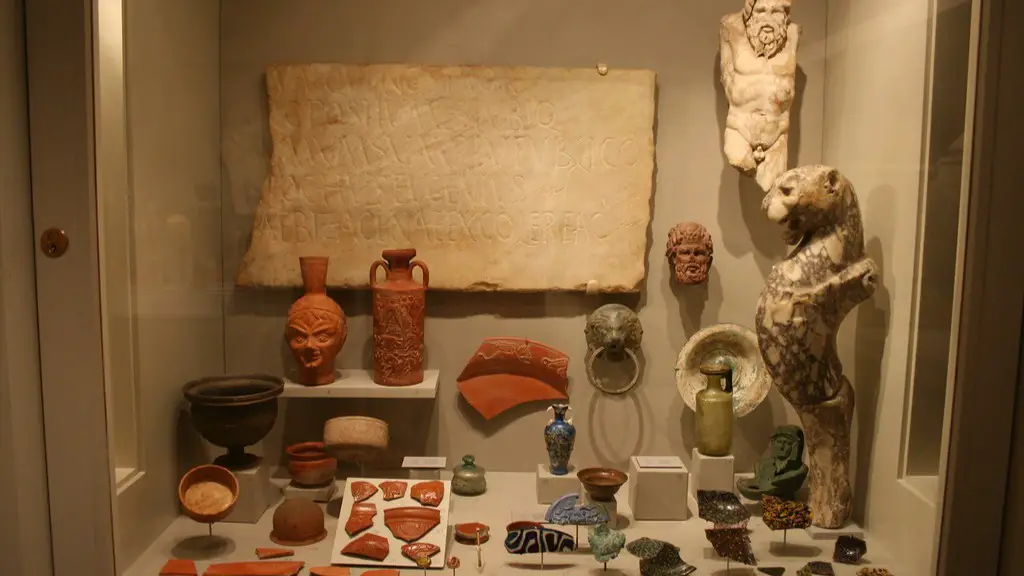Early Christians in Rome faced a hostile environment. The emperor worshiped multiple gods and goddesses and expected his subjects to do the same. Rewards were given to those who participated in these pagan practices, while those who refused were often persecuted. Despite the odds, some Romans did choose to follow Christ. There is evidence that some members of the imperial family were sympathetic to Christianity, which may have helped the religion to survive. In 312 ce, the emperor Constantine had a vision that led him to embrace Christianity. After that, the religion began to spread more rapidly throughout Rome and the empire.
Yes, ancient Rome did embrace Christianity. Rome was an early adopter of Christianity, and the faith quickly spread throughout the empire. Christianity would eventually become the official religion of Rome.
How did the Romans feel about Christianity?
Christians were occasionally persecuted—formally punished—for their beliefs during the first two centuries CE. However, the Roman state’s official position was generally to ignore Christians unless they clearly challenged imperial authority.
Christianity continued to spread through the territories of the western Roman Empire after its fall in 476. Over the next several centuries, it became the dominant religion in the city of Rome as well as the European regions over which the Roman Empire had ruled. This spread was due in part to the fact that the Christian faith provided a sense of community and belonging that was appealing to many people. Additionally, the Church became increasingly organized and institutionalized, which helped to ensure its continued growth.
Why did Romans accept Christianity
Christianity was appealing to many members of the lower classes in the Roman empire not only because of its promised liberation from any afflictions encountered in this world but also because of the established community that was totally equal, regardless of social class or gender, through baptismal promise.
The Senate’s refusal to legalize Christianity and declare Christ a Roman god weakened the Jewish religion. Emperor Tiberius asked the Senate to consider this sect, but they refused. Christianity was pronounced an “illegal superstition,” which made it a crime under Roman law.
Did Christianity destroy the Roman Empire?
The rise of Christianity did play a small, but not insignificant, part in the decline of the Roman Empire. Christianity eroded traditional Roman beliefs and values and caused conflicts between Christians and those who continued to hold onto the old pagan philosophies. Christianity also contributed to the decline of the Roman Empire by weakening the traditional family structure and by encouraging people to turn their backs on the material world.
Although Christians were persecuted for their refusal to worship the emperor, this was likely not the only reason for the general dislike of Christians. Christians also refused to worship the gods or take part in sacrifice, which was expected of those living in the Roman Empire. This likely caused Christians to be seen as disruptive and unpatriotic, leading to further persecution.
What religion did Romans believe in?
The Roman Empire was a primarily polytheistic civilization, which meant that people recognized and worshiped multiple gods and goddesses. Despite the presence of monotheistic religions within the empire, such as Judaism and early Christianity, Romans honored multiple deities. The most prominent deity was Jupiter, who was honored as the king of the gods. Other important deities included Mars, the god of war; Apollo, the god of the sun; and Venus, the goddess of love.
Theodosius I was the Eastern Roman Emperor from 347 to 395. He was the last Roman Emperor to rule over both the Eastern and Western Roman Empires. In 380, he signed a decree in Thessaloniki in the presence of the Western Roman Emperor Valentinian II that made Christianity the religion of the state and punished the practice of pagan rituals. This decree helped to solidify Christianity as the dominant religion of the Roman Empire.
What did Jesus say about the Romans
Jesus tells us to obey both the laws of God and the laws of man. We are to render to Caesar the things that are Caesar’s, meaning we are to obey the government, and to God the things that are God’s, meaning we are to obey God’s laws. We are to live our lives in obedience to both sets of laws.
The Romans were mostly tolerant of other religions, provided that the conquered populace incorporated the Imperial Cult into their worship. The Romans sought to equate their own gods with those of the local population.
Who was the first Roman Empire to accept Christianity?
Emperor Constantine was a major figure in the Roman Empire who presided over a period of transition. He is most renowned for his Acceptance of Christianity and for founding the city of Constantinople. His rule was crucial in linking ancient history with the Middle Ages, making him a key figure in world history.
Christianity affected the rulers of Rome because it went against their rule of worshipping the Roman gods and emperors. This caused many people to suffer and parish. Once the Roman rulers found out about Christianity, they were enraged. Emperors like Nero had strong feelings against Christians.
Was Christianity the cause of the Dark Ages
Christianity did contribute heavily to Europe’s fall into the roughly thousand year period of societal stagnation known as the Dark Ages. A particular cause is corruption within the church and the resulting demoralized population. Christianity indoctrinated Europeans with the belief that this life is but a stepping stone to the next, causing them to value things of this world less. Additionally, the church’s monopoly on education and knowledge kept Europeans from advancing intellectually and technologically.
There are several reasons that may have contributed to the persecutions of Christians in the first century. One reason is local, socio-economic conflict with Jewish circles. Christianity was seen as a threat to the established order and was therefore declared illegal. Another reason for the persecution is that after AD 64, the Emperor Nero placed Christianity on the imperial list of “illicit” sects. This meant that Christians were not allowed to practice their religion openly and were often subject to harassment and violence.
Who did the Romans fear the most?
The Huns were a group of people who lived in Central Asia and invaded the Roman Empire in the 5th century. They were known for their superior fighting technique and caused thousands of people to flee west.
There is a lot of evidence to suggest that Jesus died in Jerusalem around 30CE. It is thought that he was executed for crimes under Roman law, specifically in the province of Judea. Therefore, it is most likely that Jesus spent his entire life in the Roman Empire.
Conclusion
Yes, ancient Rome did embrace Christianity. Christianity began to spread through Rome in the mid-1st century, and the Emperor Constantine granted official status to the religion in 313.
While ancient Rome did not officially embrace Christianity until the Emperor Constantine converted in the 4th century, there is evidence that Christians were present in Rome from an early date. Christian inscriptions and artwork have been found in Roman catacombs dating back to the 2nd century, and Christians were subject to persecution during the reign of Nero in the 1st century. Thus, while ancient Rome did not initially accept Christianity, it did eventually come to embrace the religion.





